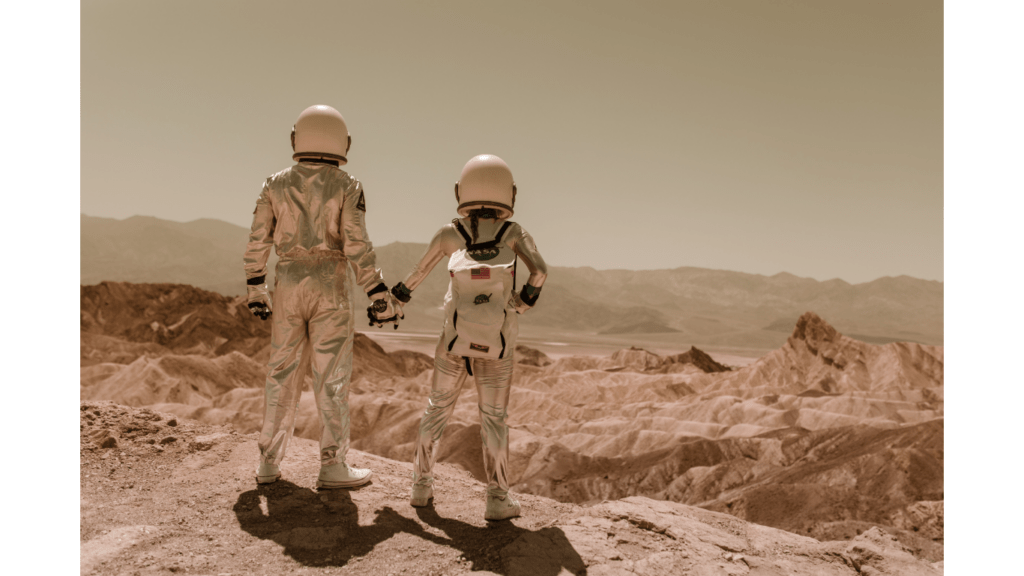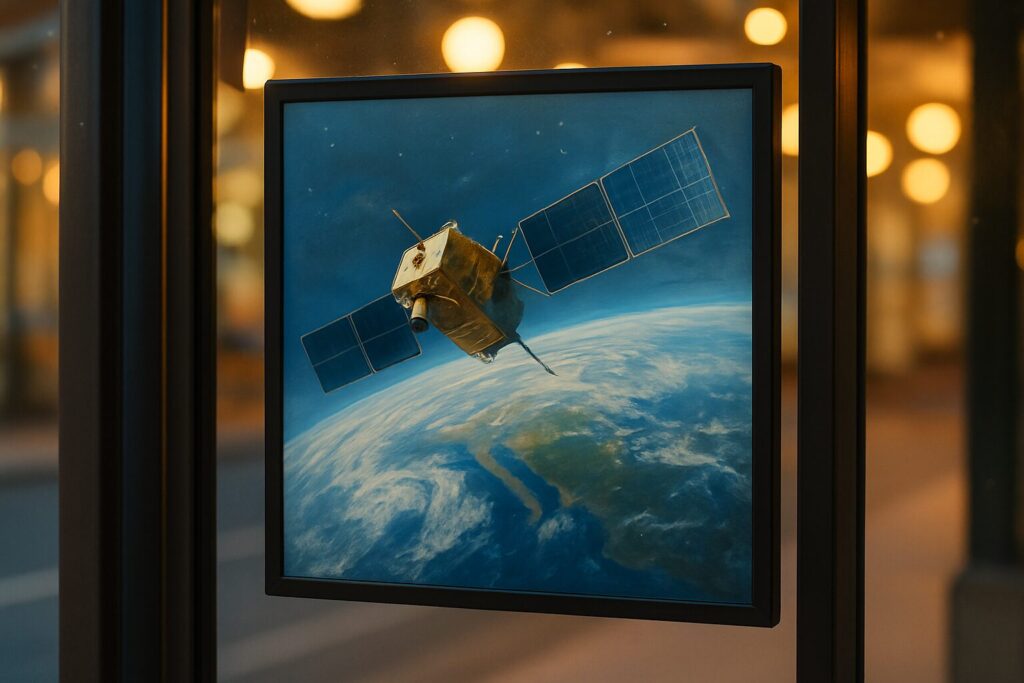The New Frontier: Mars Colonization
Why Mars?
- Exploring Mars offers a new horizon for humanity. It’s not just about curiosity; it’s a necessity. Mars presents a unique opportunity for scientific advancement, potential resource exploration, and a backup plan for the survival of the human species. The red planet’s similarities to Earth make it a prime candidate for colonization. With its day length, seasonal variations, and abundant resources, Mars beckons us to expand our reach beyond our home planet.
Challenges of Martian Settlement
- Establishing a viable colony on Mars is no small feat. The harsh environment, extreme temperatures, lack of a breathable atmosphere, and high levels of radiation are just some of the challenges awaiting future settlers. Adaptation to these conditions requires innovative solutions in habitat design, resource utilization, and life support systems. Overcoming these obstacles demands a collective effort of scientists, engineers, and visionaries to pioneer a sustainable presence on the red planet.
Pioneering Technology for Interplanetary Travel
1. Propulsion Systems: The Heart of Spacecraft
In interplanetary travel, propulsion systems are the lifeblood of spacecraft. These systems propel us through the vast expanse of space, enabling us to reach distant destinations like Mars. Ion thrusters, solar sails, and nuclear propulsion are among the cutting-edge technologies revolutionizing space travel. Ion thrusters use electric fields to accelerate ions and generate thrust efficiently over long periods, making them ideal for extended missions. Solar sails harness the power of sunlight to propel spacecraft, offering a renewable and continuous means of propulsion. Nuclear propulsion, though still in development, shows promise for enabling faster travel through space by harnessing the energy released from nuclear reactions. These innovative propulsion systems are crucial for making interplanetary travel a reality by reducing travel time and increasing spacecraft efficiency.2. Life Support: Sustaining Humans on Long Voyages
Life support systems are essential for sustaining human life on long interplanetary voyages. These systems provide astronauts with the necessary resources to survive in the harsh environment of space. Oxygen generation, water recycling, and waste management are key components of life support technologies. Oxygen generation systems use electrolysis to produce breathable air from water, ensuring a constant supply of oxygen for the crew. Water recycling systems purify and recycle wastewater, minimizing the need for regular water resupplies. Waste management systems process and recycle waste products, reducing the overall environmental impact of human presence in space. Developing advanced life support technologies is critical for ensuring the health and well-being of astronauts during extended missions to Mars and beyond.The Economics of Exploring the Red Planet

The Cost of Colonization
- Delving into the economics of Mars colonization unveils a multifaceted landscape. Initial estimations suggest that the cost of setting foot on the Red Planet could be in the ballpark of billions of dollars. Factors like spacecraft development, life support systems, crew training, and ongoing mission logistics contribute significantly to the high costs associated with Mars colonization. Investment in research and development for advanced technologies is paramount to address these expenses and pave the way for sustainable Martian settlements. It’s clear that the financial commitment required for Mars colonization is substantial, but the potential rewards in terms of scientific breakthroughs and expanded horizons for humanity make it a compelling endeavor.
Potential Economic Benefits
- Exploring Mars presents a plethora of potential economic benefits that extend far beyond the realms of space exploration. The advancement of space technologies for Mars missions often leads to spin-off technologies that find applications in various industries on Earth. For instance, innovations in materials science, robotics, and sustainable energy developed for Martian missions can revolutionize sectors such as healthcare, manufacturing, and renewable energy on our planet. Moreover, the establishment of a sustainable human presence on Mars could open up new avenues for extraterrestrial commerce, mineral resource extraction, and interplanetary tourism, offering unique economic opportunities for both private enterprises and governmental agencies. The economic viability of Mars colonization lies not only in exploring the unknown depths of space but also in fostering innovation and economic growth on Earth.
International Collaboration in Space
Global Efforts Towards Martian Exploration
- In the realm of interplanetary exploration, collaboration among nations plays a pivotal role in advancing our understanding of Mars. International cooperation in space missions allows countries to pool resources, share expertise, and collectively tackle the challenges associated with Martian exploration. Various space agencies such as NASA, ESA, Roscosmos, ISRO, and CNSA have been at the forefront of global efforts to explore the Red Planet.
- These collaborative initiatives involve sharing scientific data, coordinating mission objectives, and leveraging complementary technologies to enhance the success of Mars missions. By working together, nations can optimize resources, spread costs, and mitigate risks associated with the complexities of space travel to Mars.
The Role of Private Companies
- In addition to government agencies, private companies have emerged as key players in the Martian exploration landscape. Companies like SpaceX, Blue Origin, and Virgin Galactic are driving innovation in space technology, manufacturing, and transportation systems. Their involvement brings advanced capabilities and entrepreneurial spirit to space exploration endeavors.
- Private companies contribute by developing reusable launch vehicles, pioneering new propulsion technologies, and exploring novel approaches to sustainable life support systems for long-duration missions to Mars. Their agility and focus on cost-efficiency have the potential to revolutionize the economics of space travel and expedite the realization of Mars colonization goals.
- By fostering partnerships between public and private entities, the collective efforts of governments and commercial enterprises are propelling humanity closer to the realization of sustainable Martian colonization and interplanetary travel.
Ethical and Environmental Considerations
Protecting the Martian Environment
- As we venture into Mars colonization and interplanetary travel, ensuring the preservation of the Martian environment is paramount. It’s essential to minimize human impact on this pristine planet to maintain its scientific value and future sustainability. Strategies must be implemented to prevent contamination of Mars with Earth microbes, which could jeopardize the integrity of potential Martian life forms and compromise scientific research. Robust quarantine protocols and strict cleaning procedures for spacecraft are imperative to safeguard the Martian ecosystem.
Ethical Implications of Colonization
- Ethical considerations surrounding Mars colonization delve into complex moral dilemmas. The exploration and potential inhabitation of Mars raise questions about indigenous Martian life forms, if they exist, and how our presence may affect their habitats. Respect for any potential life on Mars and the responsibility to preserve it are crucial aspects of ethical decision-making in space exploration. Furthermore, issues related to property rights, governance, and human rights of future Martian settlers must be addressed to ensure fair and just practices are upheld in the process of colonization. Striking a balance between scientific progress and ethical responsibilities is essential as we embark on this monumental journey to make Mars our second home.



